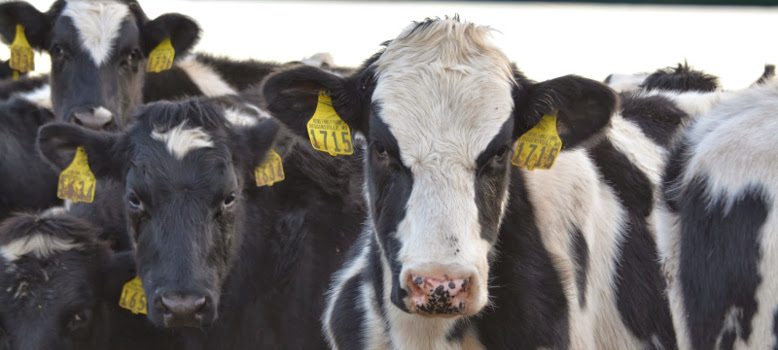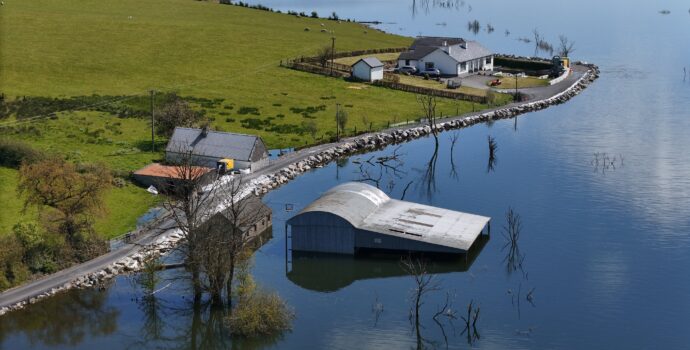Dairy Co-op and Supplier Relationships Post-2015

IFA National Dairy Committee Chairman Sean O’Leary reviews how the relationship between co-ops and their milk suppliers / shareholders needs to evolve post-quota.
All the on-farm and industry planning for the end of quotas had not included the unfortunate coincidence of the end of quotas with a major global market shock – and it is a coincidence.
Production growth running faster than demand in recent months was a global phenomenon, not one to be blamed on the end of European quotas.
However, it is clear that farmers and co-ops will have to develop a new, closer relationship to negotiate the difficult few months ahead, but also the longer term future, where volatility of returns and the need to compete on new, high value markets will challenge both.
Support through volatility
Managing milk price and income volatility is the top issue for the sector. Co-ops will have to help farmers manage cash flow by developing means of supporting milk prices in the short term, and by offering risk management solutions such as fixed margin contracts or hedging options with the support of the Irish Dairy Board for the longer term.
Farmers who are planning to expand will need greater certainty on milk prices.
Milk Supply Agreements (MSA)
Most co-ops have asked their suppliers to sign an MSA, in order to help plan processing capacity investment. To achieve this, some require farmers to forecast their future milk supplies – not an unreasonable provision when extra capacity is needed.
IFA has issued recommendations on MSAs to all co-ops, and fed into the consultation processes in most co-ops as requested by members.
IFA believes the aims and provisions of the MSAs must be founded in the co-op’s rules, democratically debated and understood by farmers. MSA provisions must be fair, and balance the interests of individual farmers and those of the co-op, including reasonable duration and fair notice periods. They must be flexible to cope with weather impact and price volatility, especially where farmers have to make financial contributions to the co-op’s investment plans.
They must not include disproportionate penalties, nor anti-competitive provisions (e.g. obligation to source inputs from a specific source).
Finally, they must give farmers a reasonable commitment to paying the best possible milk price, and a more specific price commitments must be transparently and verifiably benchmarked.
Supply of keenly priced inputs
Co-ops are dairy farmers’ main input suppliers. The convenience of bill payment directly from milk cheques and the softer approach to outstanding credit make them attractive.
However, the cost of credit through co-ops is high, and the product prices not always the keenest.
It would be far more economical for farmers to source bank credit to purchase competitively priced inputs from co-ops or other merchants.
Preparing farmers for SDAS
The Sustainable Dairy Assurance Scheme (SDAS) was developed by Bord Bia on behalf of the Irish Dairy Board and co-ops, to demonstrate our farms’ quality and sustainability credentials and to improve our ability to secure new higher value markets for our milk.
Co-ops need to devote resources to prepare farmers for the audits to ensure they are certified as promptly and smoothly as possible. Current average scores of 95% suggest that the scheme is achievable with that support.
Don’t take suppliers for granted.
With quotas ending, co-ops cannot simply take the loyalty of their suppliers for granted.
They must work to deliver the best milk price and long term value, and to communicate persuasively how they plan to do this.
Co-ops must continually improve efficiencies, add value, and must not shy away from the possibility to negotiate fair and balanced merger/consolidation terms with other co-ops.
Farmer ownership a major asset
The democratic farmer ownership of the Irish industry is the envy of farmers worldwide, and a huge asset. Before jumping ship, farmers must consider all relevant issues in choosing a milk purchaser.
Milk price record and commitment, investment and marketing plans, supply conditions (MSAs), availability and terms of input purchases, support in other areas (advisory, SDAS…), should all be taken into account.
Farmers have the right to leave their co-ops, but it can weaken the competitiveness of the industry, to the ultimate detriment of all milk producers.
However, the onus is firmly on co-ops to make a convincing business case for farmers to stay.




